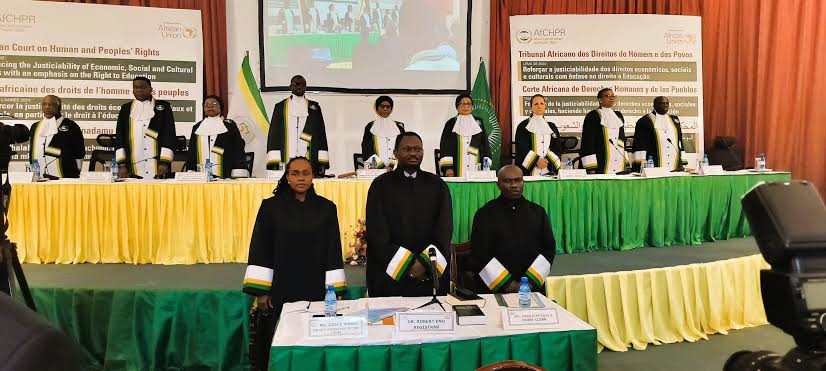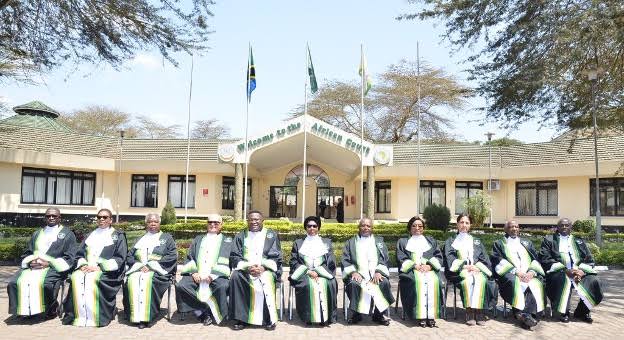Facebook Twitter (X) Instagram Somali Magazine - People's Magazine
The African Court on Human and Peoples’ Rights (AfCHPR) is set to usher in new leadership this Monday, June 2, as judges gather for the Court’s 77th Ordinary Session to elect a new president and vice president. This moment marks the close of a historic chapter, with Justice Imani Daud Aboud of Tanzania completing her four-year term as president—an era defined by both precedent and progress.
Justice Aboud, the first woman from East Africa to serve as president of the AfCHPR, was elected to the position in 2021 during the Court’s 61st Session. Her term was characterized by legal rigor, expanding visibility of the Court’s work, and a push for inclusivity across Africa’s justice system. Alongside her, Justice Modibo Sacko of Mali, who has served as vice president, will also be stepping down, completing his second and final two-year term as outlined by the Court’s leadership term limits.

Both Aboud and Sacko were re-elected in 2023 after their initial terms ended, in full accordance with the Court’s rules, which limit both the president and vice president to a maximum of two terms. Their leadership tenure was defined by stability and transformation, as the Court strengthened its reputation across the continent and reinforced its mandate to uphold justice and human rights for African citizens.
The upcoming election will be conducted via a secret ballot among the 11 sitting judges of the Court. This method, designed to maintain impartiality and independence, is a long-standing tradition of the institution. The process is expected to determine successors capable of upholding the judicial integrity established under the stewardship of the outgoing leadership.
The field of eligible voters and potential candidates includes a distinguished panel of jurists representing various regions of Africa. Among them are Justice Blaise Tchikaya of Congo-Brazzaville, Justice Rafaâ Ben Achour of Tunisia, and Justice Tujilane Rose Chizumila of Malawi. They are joined by Justice Dumisa Ntsebeza from South Africa, Justice Stella Isibhakhomen Anukam of Nigeria, Justice Angela Mudukuti of Zimbabwe, Justice Naceesay Salla-Wadda of The Gambia, Justice Koffi Afande of Togo, and Justice Aboudou Assouma of Benin, alongside the outgoing leaders Aboud and Sacko themselves.
Justice Aboud’s tenure has left an indelible mark. She succeeded Justice Sylvain Oré of Côte d’Ivoire and became a symbol of regional progress and gender representation in continental governance. Justice Sacko, who took over from Justice Ben Kioko of Kenya, also played a crucial role in supporting the Court’s judicial operations and expanding its diplomatic engagement.
As the election approaches, observers anticipate a smooth transition in leadership, in keeping with the Court’s traditions and regulatory framework. The vote represents not only a procedural requirement but also a moment of reflection and renewal. With a diverse and experienced bench, the Court is well-positioned to continue its mission of delivering justice, protecting human rights, and shaping the legal future of the African continent.
The African Court plays a central role in interpreting and enforcing human rights laws across member states of the African Union. Leadership transitions such as this are critical to sustaining its credibility and independence while responding to emerging challenges across the continent.

